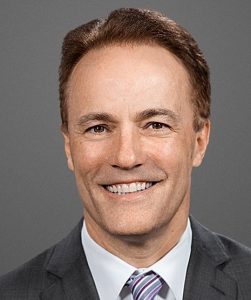
At the forefront of fintech is a company which processes mass data better.
David Hirko is the co-founder of B23 and his company does just that.
He was the latest guest on the podcast of Andrew Busch, the Commodities Futures Trading Commission (CFTC) Chief of Market Intelligence.
“We started B23 to help customers see through the hype and uncertainty of analyzing large volumes of data.” The company said on its website.
As Hirko explained, companies which employ algorithms- which means nearly every trading firm- won’t have success unless it is able to process as much data as possible properly.
The job of creating algorithms, Hirko explains, is done generally by B23’s clients, and B23 partners up by helping these companies process more data properly.
“(B23) Engineering the data so it fits neatly into those algorithms,” Hirko said.
Busch noted of algorithms, “it’s garbage in, garbage out.”
By this he meant, if the wrong, misleading, or otherwise faulty data is processed, it doesn’t matter if the algorithm is functional.
“Let’s extract competitive advantages from data,” Hirko said.

What Hirko is doing is changing the face of trading; Busch referred to do as data science and in demand among proprietary trading firms.
Busch said he trolls websites of proprietary trading firms and often checks out what jobs they are advertising.
He said he found an extraordinary amount of job openings for “data scientists”, specifically in the Chicago proprietary trading market, which is robust.
Hirko’s company is at the forefront of fintech, combining Artificial intelligence with other forms of digital data analytics.
Hirko noted that satellite technology data analysis is not only used for precision agriculture but also by hedge funds and other financial services companies.
In a recent blog post, which Busch spoke about, Hirko theorized about other ways in which his technology might change the world.
A blog post from October 2, 2018 from the B23 website is entitled: “Exploring Credit Default Swap (CDS) Market Data Using Modern Data Science Techniques”
The results appeared promising.
“A fundamental technology enabler for our customers is the B23 Data Platform which is a Cloud-based artificial intelligence (‘AI’) engine to discover, transform, and synthesize data from a variety of sources to provide unique and predictive insights. The B23 Data Platform is used by data-centric enterprises in many different industries including technology companies, government agencies, and financial institutions to securely use the Amazon Cloud to gain insight from very large data sets.” The blog stated of the enormous potential the company claims their technology can have on analyzing data.
The company said that they were able to accomplish five data points.
- Created secure Machine Learning (“ML”) Analysis Cluster in representative Customer Private Cloud
- Ingested 5 years of CDS data in into the ML analytics cluster in 1 minute
- Identified anomalous CDS trading activities for complex market transactions
- Created established CDS compliance reporting metrics
- Identified CDS market characteristics at an individual products and individual series levels
The analysis showed, “B23 investigated several transactions in the DTCC CDS data that looked peculiar. Figure-2 shows a relativelysmall number of transactions composed of multiple line items in the data set that exhibited anomalous market activities.”
The data showed a trade which was corrected several times in a quick succession.
This sort of analytics could be a powerful tool in what is referred to as regtech, or regulation technology.
With algorithmic trading all the rage, many of the scams attempt to manipulate other’s machines.
This sort of data analysis is perfect for spotting such things.
Indeed, in a story from The Industry Spread from February 2018 by the Chicago trading firm 3 Red Trading, a data analytic at the Chicago trading firm Citadel Trading, explained how he used similar sort of data analytics tools to spot spoofing in the E-Mini S & P 500 contract (ES).
“Beginning in September 2013 through December 2013, I, along with another employee who reports to me, started looking into the trading data to determine what happened. First, we used a program to analyze statistics related to the size of orders, which was unusual and inconsistent with the conduct that we previously observed in ES.
“By further reviewing the data manually and with the help of software programs that we created, we identified a pattern in which a trader entered disproportionately large orders in the order book that, in the aggregate, often constituted 25% to 50%, of the resting orders in the top several layers of the order book.”
“Next, we observed that, all within a few milliseconds: 1) a large number of orders would be removed from the top level; 2) there would be a large trade for the remainder of that level; and then 3) a large quantity of orders in the opposite direction at the same price would appear in the order book.”
Tyler Gallasch is with the Healthy Markets Association and speaking at a House Financial Services Committee hearing in December 2017, said no such technology yet existed from the regulatory side.
 “Because there’s no automated way to link the trading and the underlying beneficial owner; there’s actually very little chance to identify and stop sophisticated market abuses without a whistleblower.” Gellasch said. “In fact, it’s only those who are not smart enough to spread around their trading who get caught and in fact we only need to look at the flash crash (occurred in 2010) to see how this all works or doesn’t. The flash crash is concerning for a lot of reasons and it was months before the SEC and CFTC figured this out, and that’s concerning. It was only five years later that we learned the role of one market manipulator outside of London in his parent’s basement and that’s only because of a whistleblower.”
“Because there’s no automated way to link the trading and the underlying beneficial owner; there’s actually very little chance to identify and stop sophisticated market abuses without a whistleblower.” Gellasch said. “In fact, it’s only those who are not smart enough to spread around their trading who get caught and in fact we only need to look at the flash crash (occurred in 2010) to see how this all works or doesn’t. The flash crash is concerning for a lot of reasons and it was months before the SEC and CFTC figured this out, and that’s concerning. It was only five years later that we learned the role of one market manipulator outside of London in his parent’s basement and that’s only because of a whistleblower.”
The technology is, however, constantly evolving and regulators in the US have made a push to improve this sort of data analytics, especially since the start of the Trump administration.
Both the CFTC and the Securities and Exchange Commission have each started fintech initiatives during Trump’s term.
The so-called consolidated audit trail was supposed to be the regulators’ way to provide this sort of analysis but delays have been the only constant for that technology.
In August the SEC announced that their consolidated audit trail would be delayed by a year.
“The amount of data which has been created has really changed the world,” Busch concluded.








